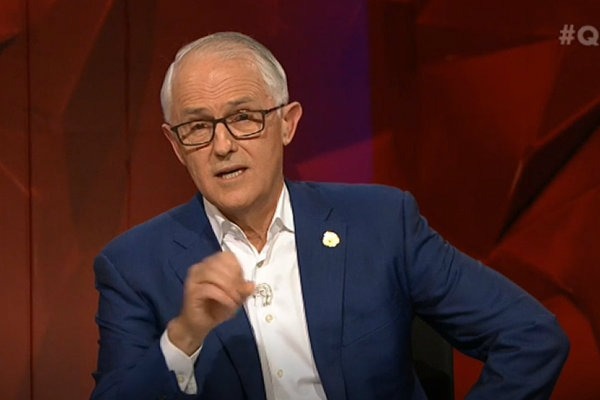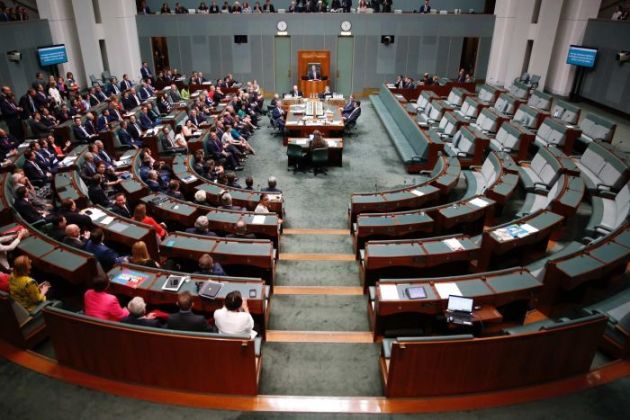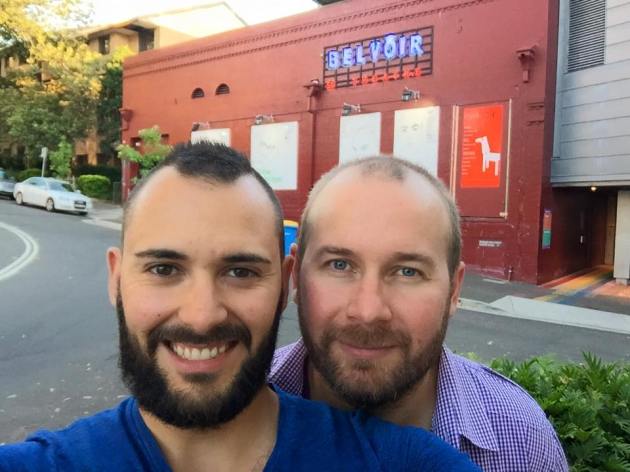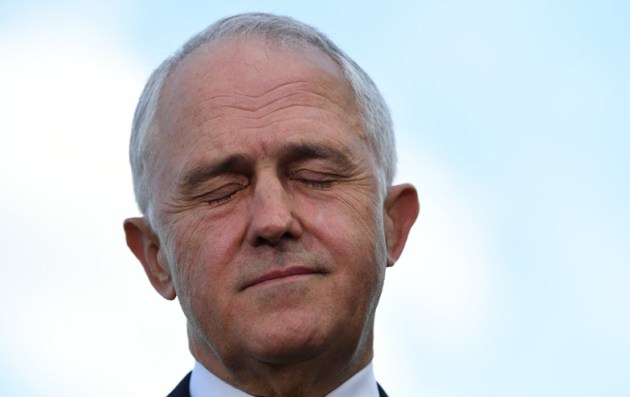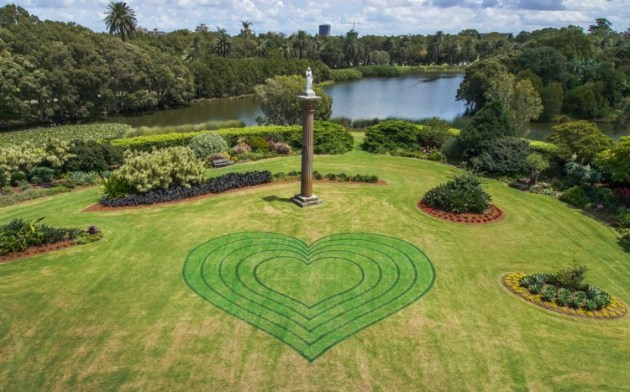Scott Morrison became Australia’s 30th Prime Minister on 24 August 2018. In my opinion, based on his (mis)treatment of the LGBTI community, he is unfit to hold that esteemed position. Here’s why:
- As Treasurer, Morrison allocated $160million to the same-sex marriage plebiscite
In his first Budget as Treasurer in May 2016, Morrison allocated $160million to the unnecessary, harmful and divisive plebiscite on same-sex marriage. This is despite the fact Parliament could have voted on this issue for free, and the money better spent on literally almost anything else.
- As Treasurer, Morrison oversaw $80.5million in spending on the postal survey
Despite the Senate rejecting legislation to hold the Turnbull Liberal-National Government’s proposed plebiscite, it decided to hold a postal survey instead. While Finance Minister Matthias Cormann signed the cheque, the money still came from Treasurer Morrison’s Budget. Once again, Parliament could have voted on this issue for nothing – but they chose to throw away $80.5million of our taxes anyway. Liberal and National Party MPs and Senators should be asked to repay it.
- During the postal survey, Morrison campaigned for a No vote
Given his conservative religious background, it is unsurprising Morrison campaigned for people to be denied equality under secular law simply because of their sexual orientation, gender identity or sex characteristics. During the postal survey he said that:
“My view on this topic is as important as everyone else’s. That is why we are having a survey on it. My view is, look I am voting no, it is okay to say no and people should know that.”
To some extent, Morrison was entitled to express that opinion. However, it is included here to demonstrate he believed the postal survey was a legitimate process to determine this issue, a context that makes the next two acts substantially more objectionable.
- Morrison voted for every discriminatory amendment put forward during parliamentary debate on same-sex marriage
Following the announcement of the 61.6% Yes vote on 15 November 2017, the Parliament still had to pass legislation to give that result legal effect (thus demonstrating the fundamental wastefulness of the postal survey). During debate of Dean Smith’s Marriage Amendment (Definition and Religious Freedoms) Bill 2017, Morrison moved amendments to protect organisations and charities that espoused discriminatory beliefs including:
- ‘the gender difference and complementarity of men and women is an inherent and fundamental feature of human society and is reflected in the gender difference and complementarity of a man and a woman united in marriage’, and
- ‘the normative state of gender is binary and can, in the overwhelming majority of cases, be identified at birth.’
Thankfully, it was defeated. Morrison also voted for every single other set of amendments seeking to add anti-LGBTI discrimination to the Bill. Perhaps the worst was an amendment to insert two separate definitions of marriage in the Marriage Act 1961 (Cth):
‘marriage means:
(a) the union of a man and a woman to the exclusion of all others, voluntarily entered into for life; or
(b) the union of 2 people to the exclusion of all others, voluntarily entered into for life.’
Again, this amendment was defeated. But we cannot forget that, despite more than 3-in-5 Australians voting for equality, Morrison voted to entrench separate definitions for marriage in the Act itself. This goes against one of the most important political lessons of the 20th century: separate but equal is never equal.
- Morrison abstained from voting on the same-sex marriage bill
Despite:
- Allocating $160million to the plebiscite in his Budget
- Overseeing $80.5million spending on the postal survey
- Campaigning during the postal survey, and
- Participating in debate on the Marriage Amendment (Definition and Religious Freedoms) Bill 2017,
Morrison abstained on the final vote on this legislation.
As discussed above, he clearly saw the postal survey process as legitimate, but he didn’t see the outcome as legitimate when his side lost. Morrison ultimately refused to implement the will of the people.
This was a gross insult to the 7,817,247 Australians who voted Yes, including the 55% of people who voted Yes in his electorate of Cook.
Scott Morrison didn’t respect our vote on the postal survey. He doesn’t deserve our vote on 18 May.
However, it isn’t just on marriage that Morrison’s words and actions mean he is, in my view, unfit to hold the highest office in the land.
- As Minister for Immigration, Morrison imprisoned LGBTI people seeking asylum in countries that criminalised them
Morrison was Minister for Immigration from September 2013 to December 2014. During this time, he imprisoned people seeking asylum on both Nauru and Manus Island, Papua New Guinea. This included lesbian, gay, bisexual, transgender and intersex refugees, despite the fact both Nauru and PNG criminalised homosexuality. This policy effectively continued their persecution – and he continued to do so even after this issue was raised with him.
- As Treasurer, Morrison axed funding for the Safe Schools program
Morrison as Treasurer signed off on the axing of an effective, evidence-based anti-bullying program that cost just $8million over three years but provided significant benefits to LGBTI students. This Budget cut was ideological not financial – elsewhere he found room for the $80.5million postal survey, as well as more than $60million per year for the National School Chaplaincy Program.
- As Prime Minister, Morrison tweeted against programs supporting trans children
On 5 September 2018 – less than a fortnight into the job – Morrison published his infamous ‘gender whisperers’ tweet:
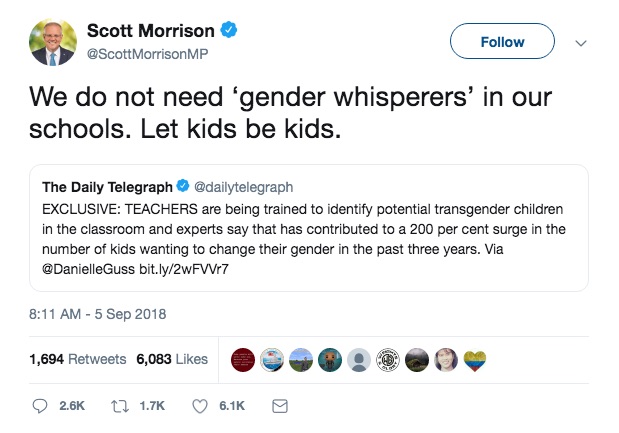
His ‘let kids be kids’ message in practice said that children should be protected from the very idea that trans and gender diverse people exist. Worse, Morrison was arguing trans and gender diverse children, who are some of the most vulnerable members of the Australian community, should be left to struggle in isolation, without any support from their schools.
If there is a better example of ‘un-Prime Ministerial’ behaviour, I am yet to see it.
- As Prime Minister, Morrison refused to condemn gay conversion therapy
In the same week, Morrison was asked about his policy on anti-gay and anti-trans conversion therapy, a practice that is nothing less than the psychological torture of people on the basis of their sexual orientation or gender identity. His response:
“I think people should make their own choices about their own lives… That’s always been my view. I’ve never been involved in anything like that, I’ve never supported anything like that. So mate, it’s just not an issue for me, and I’m not planning to get engaged in the issue.”
He has refused to take any action on this issue in the seven months since. Once again, Morrison has displayed his lack of concern for people whose life experiences are different to his own.
Indeed, on all four of these issues – LGBTI people seeking asylum, LGBTI students, trans and gender diverse children and survivors of anti-gay and anti-trans conversion therapy – he has shown that he basically does not care about some of the most disadvantaged people in society.
If Scott Morrison does not have empathy for others, he should not receive the votes of others.
- As Prime Minister, Morrison broke his promise to protect LGBT students against discrimination
In response to the leaking of recommendations from the Ruddock Religious Freedom Review in October 2018, Morrison promised he would protect lesbian, gay, bisexual and transgender students against discrimination by religious schools before the end of the year.
That deadline came and went, and his Government never even introduced a Bill to try to give effect to this commitment. The 45th Parliament has now expired, with LGBT students just as exposed to mistreatment and abuse as they were before his hollow words.
In fact, Morrison delayed any action on this issue by referring the subject of ‘religious exceptions’ to the Australian Law Reform Commission for review by 10 April 2020, meaning LGBT students will not be protected until the start of the 2021 school year (at the earliest). This is an egregious breach of faith of the Australian people, who expected him to back his promise with action.
- Morrison has no policies on LGBTI issues
Less than four weeks before the election and it appears the Liberal Party has no policies on LGBTI issues. Try searching the Liberal Party’s website. There’s nothing there. Nada. Zero. Zilch.
In the first 11 days of the election campaign the only comments I can find Morrison has made on LGBTI issues is the same, re-hashed promise to protect LGBT students against discrimination – you know, the promise he has already broken once. It’s clear he does not have a plan for lesbian, gay, bisexual, transgender and intersex Australians.
If Scott Morrison won’t govern for all Australians, he shouldn’t govern any Australians.
- Morrison won’t tell us what’s in his Religious Discrimination Bill
The other major outcomes of the Religious Freedom Review were a proposal for a Religious Discrimination Bill (which was recommended by Ruddock) and a promise to appoint a Religious Freedom Commissioner (which was not recommended).
These represent the biggest changes to Commonwealth anti-discrimination law since the introduction of the Age Discrimination Act 2004.
However, despite having the Religious Freedom Review for 11 months, and comments in December by Attorney-General Christian Porter about “the Religious Discrimination Bill, which we are well-advanced on the drafting of and which we would have out early next year, so that people can see it”, we are yet to see any details of this legislation.
Indeed, the day before the election was called, it was reported that:
“Attorney-General Christian Porter told The Australian the religious discrimination bill was “well advanced” but “not at the point of readiness”. “It remains clear government policy and, if re-elected, one of the first orders of business would be to pursue that legislation” (‘Religious freedom bill fails to meet election deadline’, The Australian, 10 April 2019).
This is particularly worrying for LGBTI Australians because, while protecting religious minorities against discrimination would be welcome, a Religious Discrimination Bill could also include new rights for religious organisations to discriminate against LGBTI people (the same kinds of amendments that Morrison himself voted for during the same-sex marriage debate).
The reality is we are being deliberately kept in the dark about legislation that could have significant impacts on Australian society, something the Government itself says will be implemented shortly after the election. That, in my opinion, is treating voters with contempt.
Updated 13 May 2019:
13. Morrison refused to disendorse a candidate who linked same-sex marriage to paedophilia
Early in the election campaign it was reported that the Liberal candidate for Scullin, Gurpal Singh, had linked same-sex marriage to paedophilia in an interview during the same-sex marriage postal survey. Despite a significant public backlash, and the disendorsement of other candidates for equally-discriminatory comments, Morrison steadfastly refused to disendorse Mr Singh for more than two weeks. Singh was only forced to resign following publication of unrelated (and despicable) comments about rape. The entire saga clearly demonstrated that for Morrison – who had repeatedly used the phrase ‘the standard you walk past is the standard you accept’ – extreme homophobia is entirely acceptable.
**********
Of course, there are other, non-LGBTI issues that cast serious doubt on Scott Morrison’s suitability for the position of Prime Minister (other actions from his time as Minister for Immigration, and bringing a lump of coal into Parliament, spring immediately to mind).
But, even ignoring everything else, on the basis of his (mis)treatment of LGBTI people alone, in my view it is clear Morrison is unfit to be the leader of this country. It’s now up to the rest of Australia whether they see fit to keep him there on 18 May.
Updated 24 May 2019:
To the shock, and disappointment, of many LGBTI people, the majority of Australians did indeed see fit to keep Scott Morrison in the top job last Saturday. His surprise victory leaves him with significant personal clout within the Liberal-National Government.
How he uses that clout will be crucial in determining whether the re-elected Coalition Government actively seeks to wind back LGBTI rights in Australia, and if so how aggressively it pursues that agenda.
The first test will be the Religious Discrimination Bill (or Religious Freedom Bill), likely to be introduced in the second half of 2019. LGBTI Australians must be prepared to do everything in our power to stop this legislation if it expands the rights of religious organisations to discriminate against us. We’ll be watching, and ready to act if necessary.
Updated 22 December 2019:
Seven months after the shock federal election result, we now know the answers to the questions posed above, namely ‘whether the re-elected Coalition Government actively seeks to wind back LGBTI rights in Australia, and if so how aggressively it pursues that agenda.’
Unfortunately, those answers are yes, and very. Scott Morrison has continued to demonstrate he is entirely unfit to be Australia’s Prime Minister. That includes for the following, additional reasons:
- Morrison’s Religious Discrimination Bill is a direct attack on the rights of LGBTI people
Morrison likes to talk about ‘quiet Australians’. But under his Religious Discrimination Bill (which was finally released in late August), religious bigots will be allowed to loudly express their homophobia, biphobia, transphobia and intersexphobia. In workplaces, and classrooms, in health services, in restaurants, cafes and shops, and all other areas of public life.
In doing so, the Bill directly overrides, and winds back, existing protections under all other Commonwealth, state and territory anti-discrimination laws, including Tasmania’s best practice Anti-Discrimination Act 1998 (despite Attorney-General Porter promising in August that it would not).
The Government’s Religious Discrimination Bill will also directly impact the health care of LGBTI Australians, including allowing doctors and pharmacists to refuse to provide hormone therapy to trans and gender diverse people, and PEP and PrEP to gay, bisexual and other men who have sex with men.
After going through a public consultation process on its first exposure draft, during which LGBTI groups, legal organisations and even the Australian Human Rights Commission pointed out the many flaws of the legislation, the Government made the Bill worse in an effort to appease religious fundamentalists like the Sydney Anglicans (which seems to have worked).
The overall result is that if the second Exposure Draft Religious Discrimination Bill is passed by Commonwealth Parliament in 2020, the rights of religious fundamentalists will be privileged over and above the rights of LGBTI Australians – and women, single parents, divorced people, people in de facto relationships, people with disability, and even religious minorities. For more, see Paul Karp’s excellent summary of what we should be afraid of [spoiler: a lot].
- Morrison has effectively abandoned LGBT students in religious schools
As I wrote previously, Morrison broke his promise to protect LGBT students in religious schools before the end of 2018, before having Attorney-General Christian Porter refer it to the Australian Law Reform Commission the day before the election was called.
When Porter released the first Exposure Draft Religious Discrimination Bill in August, he also narrowed the scope of those terms of reference, and extended the reporting date until 12 December 2020. Now that the Government has chosen to release a second Exposure Draft, it is highly likely this timeline will be extended again, and the ALRC will consequently not report until at least 2021.
Given the usual six-month period for the Government to respond to that report, there will be no action until at least late 2021, and it is almost certain that the Coalition Government will not seek to pass any reforms before the next election, due in May 2022.
This would mean that, almost four years from his initial promise to protect them, Scott Morrison would have done exactly nothing to stop vulnerable LGBT kids from being discriminated in schoolyards around the country. Discrimination that takes place. Every. Single. Day.
- Morrison spends his time as Prime Minister attacking trans-inclusive sporting policies…
In August, Morrison chose to criticise Cricket Australia for issuing national guidelines aimed at making community cricket more inclusive for trans and gender participants.
He stated that “[t]here are far more practical ways than these heavy, mandatory ways of doing it. Why there’s the necessity to get the sledgehammer on this, it’s mystifying to me and we should manage it calmly”, before adding “[i]t’s pretty heavy-handed to put it mildly. The thing about sport is it should be driven locally by local clubs.”
With the obvious implication that some local clubs would inevitably decide not to be inclusive, and that this would be fine with our so-called ‘leader’.
- …and trans-inclusive toilets
Perhaps the most bizarre, and offensive, use of Prime Ministerial time came later in August, when Morrison chose to exercise his ‘authority’ (official, certainly not moral) to have a sign taken down from a toilet door in the Department of Prime Minister and Cabinet. Yes, you read that correctly.
The sign in question simply said ‘PM&C is committed to staff inclusion and diversity. Please use the bathroom that best fits your gender identity.’ Direct. Inclusive. And welcoming.
But apparently that was too much for our fragile PM to bear, declaring “[i]t’s just political correctness over the top. It’s just not necessary. I’ve got a clear view about this and I’m sure this will be sorted… It’s ridiculous. It’ll be sorted out. I’ve had a chat to the incoming head of Prime Minister and Cabinet, who’s putting his feet under the desk on Monday… I think people can work out which room to use.”
Perhaps, instead of appointing himself Minister for – or, more accurately, against – trans sporting policies, and toilet door signs, Morrison could have spent that valuable time meeting with [ex-]fire chiefs about this year’s bushfire season.
- Morrison’s Government locked up gay journalists fleeing Saudi Arabia
As just one example of the Liberal-National Government’s ongoing horrific approach to refugees and people seeking asylum generally, and LGBTI refugees specifically, earlier this year the Morrison Government responded to a gay couple, who were journalists, fleeing the homophobic and politically repressive regime in Saudi Arabia, by locking them up in immigration detention.
One of the pair, Sultan, described their experience in a recent interview: “[a]lthough I’ve been threatened, intimidated and bullied in Saudi Arabia, I was never thrown in a jail cell without charge. That didn’t happen to us until we came to Australia.”
Just let the full horror of that statement sink in for a minute.
Fortunately, for Sultan and Nassar, they were released from held detention in recent weeks. However, there is no guarantee in terms of what the future holds for them. Or for other LGBTI refugees and people seeking asylum, including those gay and bisexual men who have been abandoned by our Government in Papua New Guinea despite laws there criminalising them.
- Morrison’s suicide prevention announcement excluded LGBTI people
In July, Prime Minister Morrison announced a new suicide prevention ‘national priority’, with the goal of ‘working towards a zero suicide goal.’
Which is obviously a welcome development. Except in doing so, he deliberately excluded LGBTI people as a priority population, with his media release stating: “I am particularly focused on continuing our strong support for those most at risk, including our veterans, Indigenous Australians and young people.”
Morrison might say he wants ‘zero suicides’, but he will not achieve that lofty goal if he makes zero reference to, and devotes minimal resources to, addressing the disproportionately high rates of suicide amongst the LGBTI community.
Although perhaps his omission was partly-based on the self-awareness that, if he explicitly included LGBTI people as a priority population, he would have to acknowledge the fact the past six and a half years of Abbott/Turnbull/Morrison Government have exacerbated this problem, from axing Safe Schools, holding an unnecessary, wasteful and divisive postal survey, failing to protect LGBT students in religious schools, and Morrison personally targeting trans and gender diverse young people.
- Morrison’s Government plans to exclude LGBTI questions from the 2021 Census
One further area where some self-reflection might benefit the Government generally, and Scott Morrison specifically, is the issue of the 2021 Census.
Despite giving the Australian Bureau of Statistics $80.5 million to ask all Australians what they thought of same-sex relationships just two years ago, the Morrison Government is now rejecting calls to include questions around sexual orientation, gender identity and intersex status for the next Census in 18 months.
This decision came after pressure from Assistant Treasurer Michael Sukkar’s office, with Australian Statistician David Kalisch at first saying “Sukkar’s office ‘did not provide any guidance about what should be on or off the [test] form,’ before conceding ‘they did express a preference but ultimately it was my call.’”
The real kicker though is the follow-up explanation that was offered:
“Kalisch noted there were ‘some sensitivities’ around the questions, because ‘some people in the broader community’ were ‘challenged to understand’ what the question about gender meant, given that the census already asks about sex. He said there was ‘sensitivity’ around asking Australians their sexuality and he had considered making the question optional.”
Is there a better example of the place of LGBTI Australians under the Morrison Liberal-National Government?
When we opposed the ABS holding a single-question, nation-wide opinion poll on the legitimacy of our relationships, and families, the Government held it anyway.
But when we seek to be included in questions in the usual 2021 Census, in order to collect robust data to address health disparities facing our communities, just asking about who we are is considered far too ‘sensitive’.
It is impossible to escape the conclusion that lesbian, gay, bisexual, transgender and intersex Australians do not count under the Morrison Government. We won’t for as long as Scott Morrison is Prime Minister, an office he is manifestly unfit to occupy.

Disclaimer: As with all posts, this article reflects my own views and not those of any employer, past or present.
If you have enjoyed reading this article, please consider subscribing to receive future posts, via the right-hand scroll bar on the desktop version of this blog or near the bottom of the page on mobile. You can also follow me on twitter @alawriedejesus

